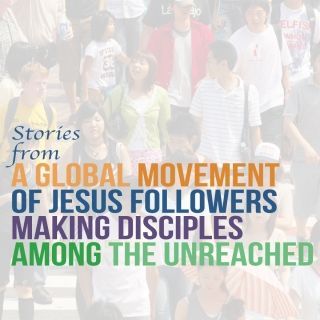
Growing in a new land
SEND's workers around the world see our new vision statement — a global movement of Jesus followers making disciples among the unreached — taking root in each place they serve. Today we focus on “ among. ” SEND workers practice incarnational ministry, living purposefully among the people we hope to reach. Today we share the story of two men — one older, one younger — who have spent countless hours building their discipling relationship, strengthening the younger so that he can reach out as the sole Christian student on his college campus.
• • •
By a worker in T’vo — Bekim*, a young man from Albania, came to T’vo* to get a job. Though he had met the Lord back home, he was a new believer and not growing much when he arrived.
A pastor had told him about our group working in T’vo, a primarily Muslim city in Europe, and Bekim contacted us. He started coming to meetings, and John* began discipling him and studying the Bible with him. Bekim started to grow; he would often call John asking if they could meet and study the Word together.
Eventually Bekim decided that he wanted to get baptized — by both his Albanian pastor and John. We traveled with him to Albania, and it was such a blessing to witness his baptism and to meet his family and share with them. (Bekim comes from a family that is not very religious but has a Muslim background.)
T’vo hosts two major universities where Albanian students come to study in their language. John challenged Bekim to begin attending one of these universities, where another student also was ministering. Though Bekim is a smart young man, he had never thought that university could be a possibility for him — but he was accepted.
Bekim trusted that God would provide, and now God has provided someone to financially support his studies. Bekim has had the opportunity to receive training for leadership, and God continues to open doors for him.
Pray for Bekim’s spiritual growth, and ask God to encourage him as he is the only Christian among 10,000 students. It is especially difficult as he is Albanian and expected to be Muslim; his Christianity makes him the black sheep in the group.
Corruption and religious issues sometimes lead teachers at Bekim’s university to block students from passing. This has happened to Bekim, either because the instructors wanted money or because they had something against him as a believer, and this is difficult for him. Pray that God will fight for him and that he will respond well and continue to behave in a way that honors God.
Praise God that Bekim has a good reputation; others see him as a good person and think that more people need to be upstanding like him. Pray that his good witness will continue, so that he can continue to be part of the global movement of Jesus-followers making disciples among the unreached .
*Names have been changed for security purposes.
More disciple-making stories
Continue in Christ: Alim’s story exemplifies how SEND workers are making disciples all over the world.
Better together: No one organization can (or should) do it all, so SEND collaborates with like-minded organizations to tackle the enormous task of reaching the unreached.
A role for everyone: We explore our vision statement with the story of how God is multiplying one gift to soften hearts in a Thai village.
Couched in love: A Central Asian believer takes what he's learned from SEND workers and uses it to reach a troubled man in his community.
Mentoring Aigerim: Sometimes, ministering among the unreached means sharing a kitchen and letting discipleship naturally develop.
Additional Posts




